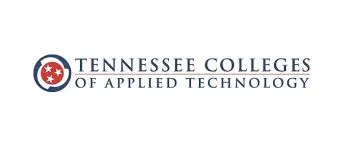It’s Happening All Around Us
With gigabit fiber internet slowly proliferating around the country because of municipal fiber projects, Google Fiber, startup ISPs, and new investment from incumbents spurred by grants and competition, America is quickly dividing into two additional segments, no longer is it those that have internet and those that do not, now we are seeing further divide between those that have fast internet and those who do not. According to Jason Koebler, “Jobs—in any meaningful number, at least—will not continue to exist in towns and rural areas that lack fast, accessible internet access.” (https://motherboard.vice.com/en_us/article/ezpk77/chattanooga-gigabit-f…).
"For smaller towns, building a network becomes a question of economic survival—they're emptying out because kids grow up and there's no jobs for them," said Masha Zager, editor in chief of Broadband Communities magazine. "Sometimes, it's a question of keeping businesses and allowing them to grow, sometimes it's about enabling teleworking, sometimes it's about attracting businesses to come to town."
Look no further than Morristown, for an example of job creation facilitated by next generation fiber optic communications and workforce development thanks to the Tennessee College of Applied Technology-Morristown (https://tcatmorristown.edu/). The city took advantage of its local electrical utility, Morristown Utility Systems, to provide gigabit speeds, and businesses jumped at the opportunity.
The list is expansive; July 2018, Oshkosh Corp., 300 jobs, May 2018, Petoskey Plastics, Inc. investing $29.6 million/70 jobs; April 2018, Van Hool investing $47 million/600 jobs; Colortech, Inc., Rockline Industries, SkyMart Venture Place, Sykes Enterprises, etc.. In addition, Morristown was just ranked sixth among southern cities for employment growth and 14th in the nation. In a recent study, USA Today reported on the top 25 US cities where incomes are growing the fastest, Morristown made the list at number 5.
Morristown’s success has been enabled by a number of factors in addition to next generation fiber optic communications technology. The U.S. News & World Report’s list of America’s Best High Schools included Morristown-Hamblen High Schools West and East on America’s Best High School List. In 2016, the Tennessee College of Applied Technology – Morristown, received a second Labor and Education Alignment Program (LEAP) grant in the amount of $983,440 in addition to being the recipient of a $110,020 Rural Business Development grant from the U.S. Department of Agriculture (USDA) that same year. The USDA grant was used at the Morristown & Hawkins County campuses to assist with the purchase of state-of-the-art technology equipment to be used in advanced manufacturing programs.
“Receiving a second LEAP grant speaks of the dedication and hard work of our academic partners,” said LEAP project manager Chris Edmonds. Funds were distributed throughout six counties and seven school districts including the three LEAP 1.0 recipients (Hamblen, Hawkins and Grainger) and four additional school systems expanding into Cock, Greene and Sevier counties with the Tennessee College of Applied Technology of Morristown at the lead. According to Edmonds, “The teachers, counselors, CTE directors and school system directors in Grainger, Hamblen, Hawkins. Cocke, Greene and Sevier counties understand the pipeline of skilled workers begins in the middle and high schools”.
This region’s LEAP grant is a part of the $10 million annually budgeted for LEAP allocations by Gov. Bill Haslam in support of his Drive to 55 Initiative. Tennessee’s Drive to 55 Initiative, supported by Tennessee Promise and Tennessee Reconnect, which provide cost paid Associate Degrees or training certificates for High School Seniors and Adults, will meet its goal of having 55 percent of Tennesseans equipped with a college degree or certificates by 2023, two years ahead of schedule. For Union County to achieve the Governor’s goal, 412 degrees/certificates need to be awarded to Union County residents per year through 2025.
Approximately 30 miles separate Morristown and Newport, but the two are joining forces to better connect local businesses and residents as entrepreneurs take up residence in the region's newest high-tech work space. (https://muninetworks.org/content/eastern-tennessee-newport-smart-grid-m…) Morristown was on the forefront of implementing city-wide Fiber-to-the-Home (FTTH) back in 2006. Today their gigabit network, MUS FiberNET, is fostering innovation in this thriving co-working space and helping neighboring communities bridge their connectivity gaps. Morristown Utility Commission (MUC) is partnering with Newport Utilities (NU) to expand Internet connectivity in the region. Newport recently received a $21 million loan from the USDA Rural Utilities Service (RUS) to expand their smart grid project, which will allow them to bring high-quality connectivity to their entire service area.
“Job opportunities are drying up in towns without broadband. Chattanooga, Tennessee turned around its fortunes by building the fastest internet in the United States”. https://motherboard.vice.com/en_us/article/ezpk77/chattanooga-gigabit-f…) “Chattanooga became one of the first gig cities almost by accident”, said Jason Koebler. The city-owned utility, Electric Power Board, started installing fiber-optic cable in 2009 to create a “smart” electric grid that could address power outages more quickly and better manage energy usage. By the end of 2010, despite fierce opposition from telecommunications companies, EPB began offering 1 gigabit internet service to its electric customers. Entrepreneurs and global companies, including Volkswagen and Amazon, are moving here, drawn in part by the city’s superfast gigabit internet, nicknamed “the Gig” by locals. The city is now one of the most connected places on earth, with one of the fastest internet speeds in the world.
Koebler noted that “At a time when small cities, towns, and rural areas are seeing an exodus of young people to large cities and a precipitous decline in solidly middle class jobs, the Gig has helped Chattanooga thrive and create a new identity for itself.”
- Log in to post comments

